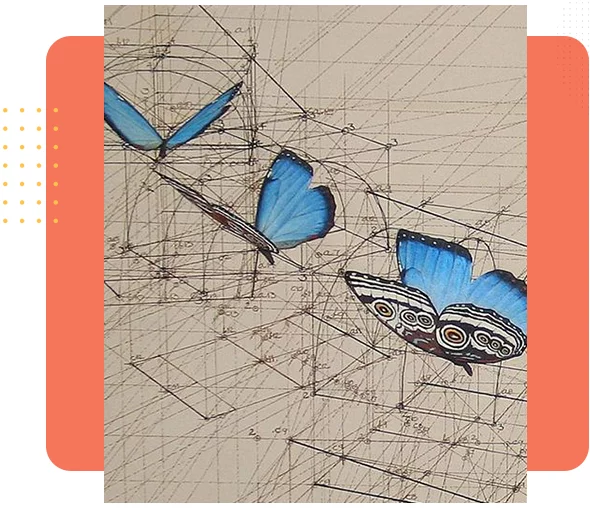Key Points:
Many people believe that the order of the universe is evidence of the existence of a higher power. After all, how else could such an intricate and perfect system have come into being? Others believe that the order of the universe is simply a product of natural laws and processes.
Cosmic Order
Regardless of one’s beliefs, there is no doubt that the order of the universe is a mystery. We are constantly finding new ways to describe this order and adjusting our worldviews and behaviors accordingly. The diversity of beliefs and ideas across cultures and religions makes the mysteries of the universe all the more beautiful and exciting.
For some people, faith is about having blind and dogmatic beliefs about unanswerable questions. For others, faith is about trusting the natural order of things beyond our control and recognizing our own limits of knowledge.

Order Of The Universe
Every year, on November 23 we celebrate World Fibonacci Day, remembering the natural wonder and mystery of the Fibonacci sequence: a sequence of numbers that appear very frequently and unexpectedly across mathematics and as a golden ratio in many natural patterns such as the number of petals on flowers, or the configurations of DNA molecules, or the logarithmic spiral of a nautilus shell. The Fibonacci sequence serves as a reminder of the harmonious order in the universe. As Carl Sagan pointed out, the order of the Universe is not an assumption; it is an observed fact.
This sense of order in the universe transcends all faiths and is seen as proof of the existence of a superior intelligence since it is hard to prove that this can happen just by chance. To work with flawless perfection, the entire universe across an infinity of space and time has to work in perfect harmony.
Universe Order
We are constantly finding new ways to describe the order we see in the universe and adjusting our worldviews and behaviors accordingly. This diversity of beliefs and ideas across cultures and religions turns the mysteries of the universe into something beautiful and exciting, rather than terrifying. Is there some fundamental order in the universe? Is there some higher power behind it all? Do we truly have free will if the universe is predetermined in this way? Or is all this perceived order something that exists primarily in our minds? These are the questions that all religions have grappled with.
The Order Of The Universe
For me, faith is less about having blind and dogmatic beliefs about unanswerable questions and more about trusting the natural order of things beyond our control, recognizing our own limits of knowledge.
What Does Cosmic Order Mean in Different Religions
Cosmic Order in Hinduism
“Under my watchful eye the laws of nature take their course. Thus is the world set in motion; thus the animate and the inanimate are created.”
—The Bhagavad Gita (9:10), Hindu text
Cosmic Order in Judaism
“And God said, ‘Let there be lights in the vault of the sky to separate the day from the night, and let them serve as signs to mark sacred times, and days and years.’”
—The Hebrew Bible (Gen 1:14-18), Jewish text
Cosmic Order in Islam
“It is He who made the sun a shining radiance and the moon a light, determining phases for it so that you might know the number of years and how to calculate time.”
—The Qur’an (10:5), Muslim text
Cosmic Order in Christianity
“For since the creation of the world God’s invisible qualities—his eternal power and divine nature—have been clearly seen, being understood from what has been made, so that people are without excuse.”
—The New Testament (Romans 1:20), Christian text
Cosmic Order in Buddhism
“Even naturalistic, ‘secular’ Buddhism does, I’d argue, posit a kind of ‘unseen order.’ As enlightenment begins to dawn, reality, which had seemed all chopped up, turns out to possess an underlying continuity, a kind of infrastructure of interconnection.”
—Robert Wright, journalist and religion writer
Cosmic Order in Modern Psychology
“[Religion is] the belief that there is an unseen order, and that our supreme good lies in harmoniously adjusting ourselves thereto”
—William James, philosopher and psychologist
Popular Reads
Fire Symbol Meaning |Religious Garments |False Narrative |Define Charioteer |Tree of Life |Divine Words |Music is a Universal Language |Allegory of the Cave |Flood Myth |Creation Stories from Different Religions |Hippocratic Oath |Fasting and Religion |Spiritual Transcendence |Sacred Books of Religions |What is Divine Justice |Believing in a Higher Power |Spirituality and Money |Oneness with God |Religious Conversion |Religious Ritual |Sacred Spaces |Promised Land Meaning |Union With God |Tithing |Spiritual Awakening |Golden Rule in all Religions |Love and Social Justice |Common Themes in all Religions |Journey Of A Hero | Gods Laugh | Spiritual Nature | What Is Karma | Spiritual Dreams


